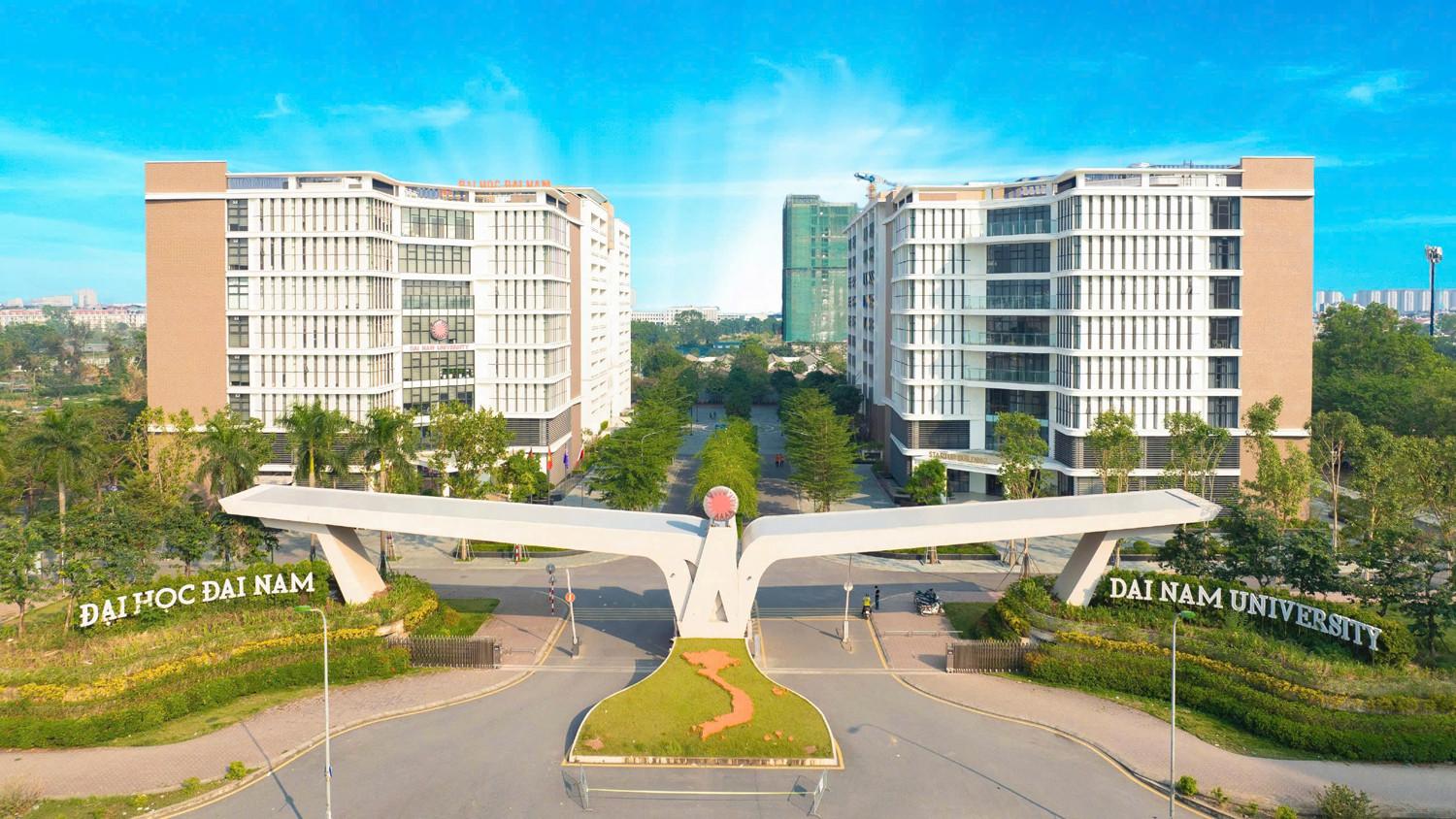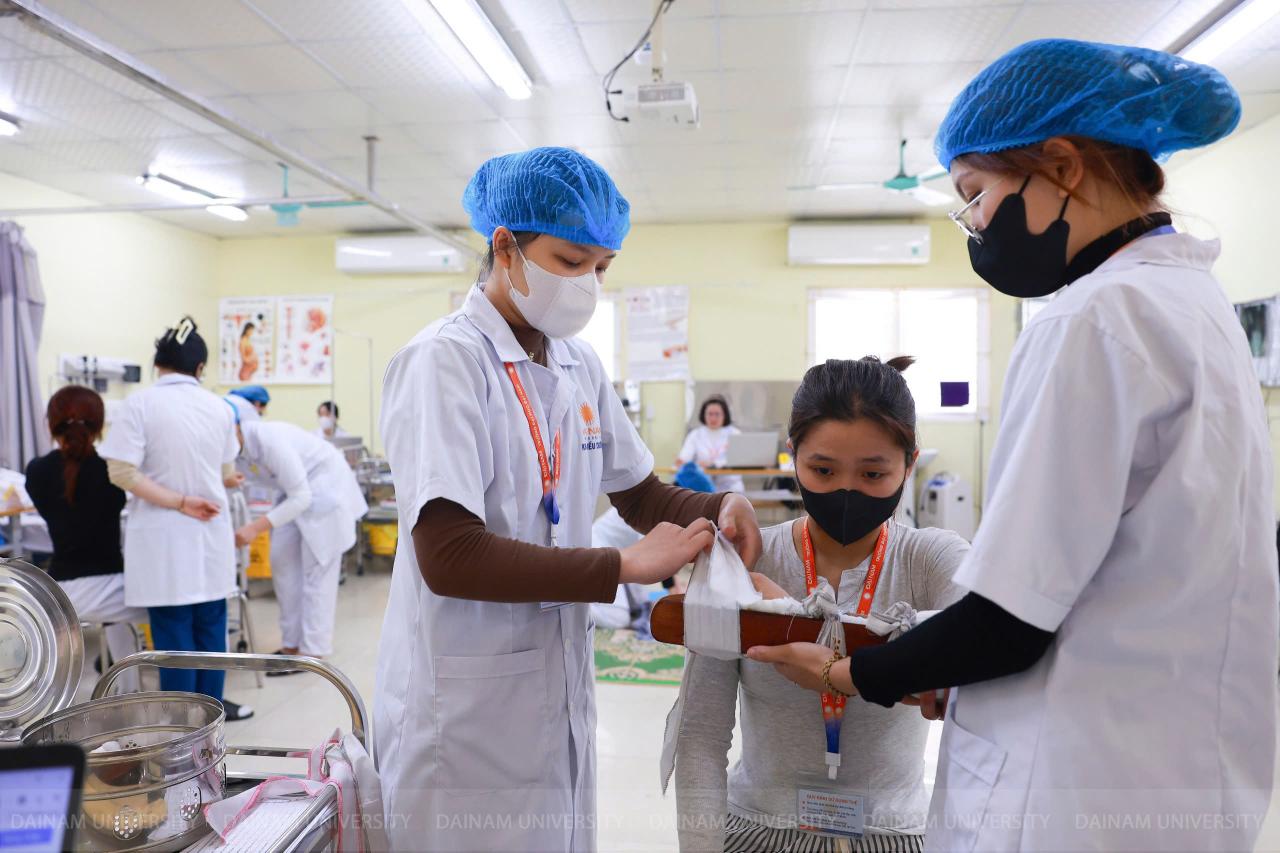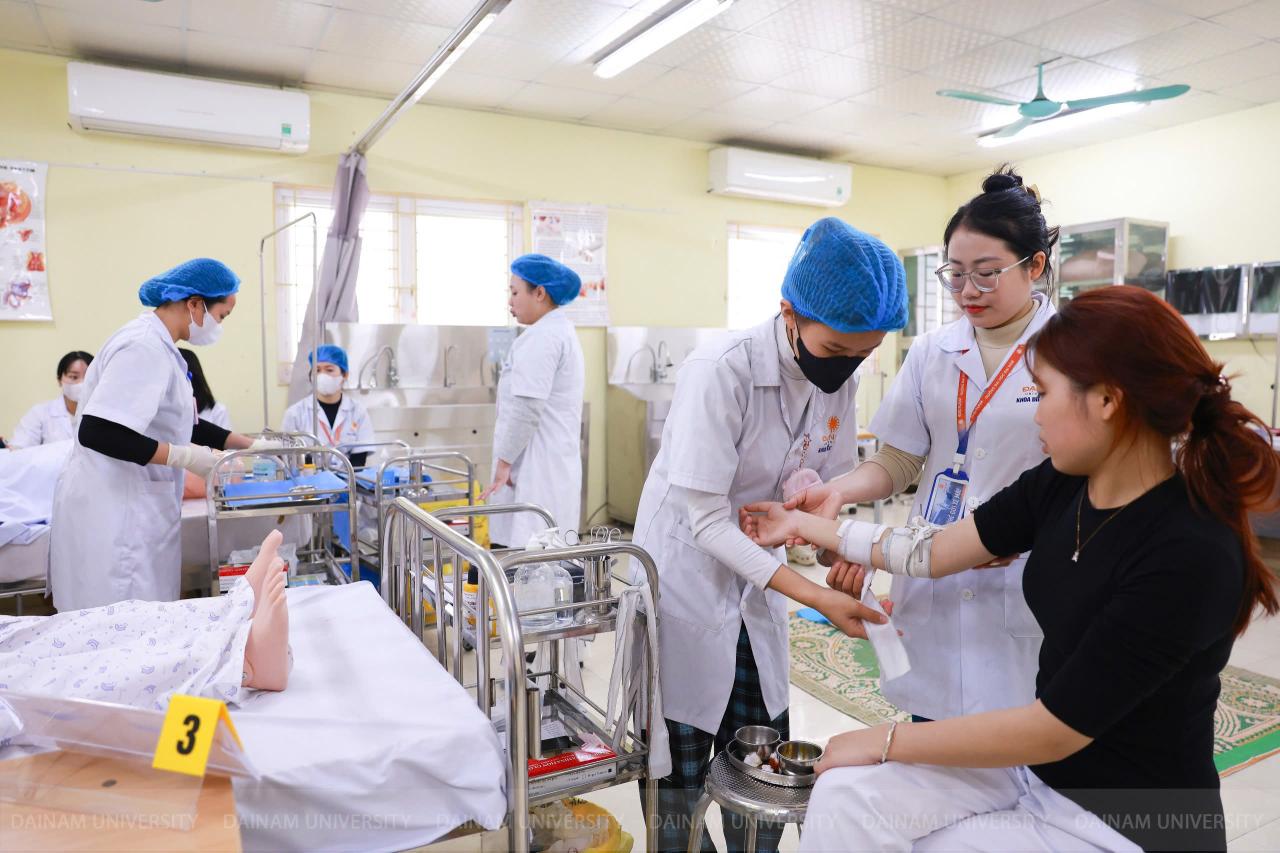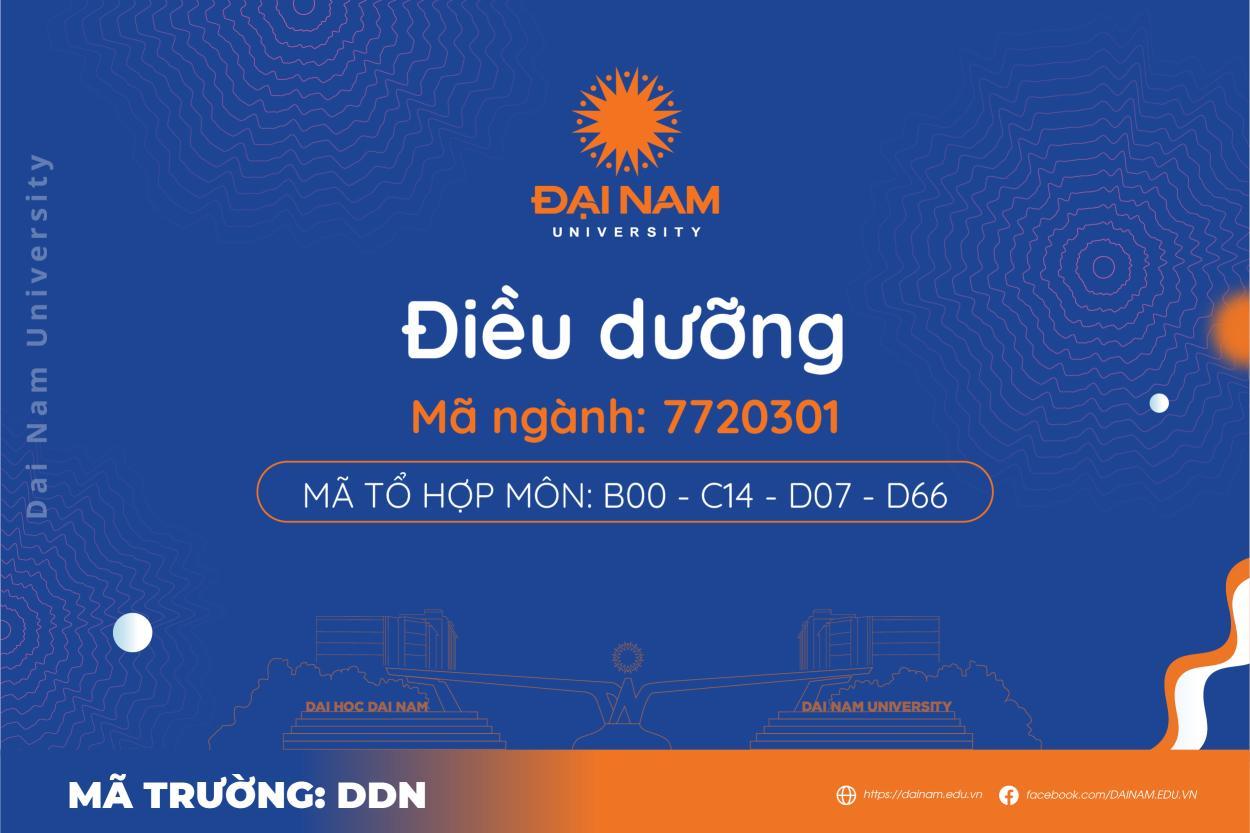What is Nursing? What do you do after graduation?

Along with the economic needs is the need to improve human health, Nursing is one of the important majors in the Health sector, playing a major role in human health care. Due to the impact of the Covid 19 epidemic, in the past 2 years, candidates have tended to "shift" to prioritize majors in the health sector, including Nursing. So "What is Nursing? What do you do after graduation?" This is an issue that is receiving the attention of many young people.
What is Nursing?
Nursing is one of the professions in the health system that aims to promote, protect, and improve human health, relieve pain through diagnosis and consultation on medical issues to create health care services for individuals and the community.
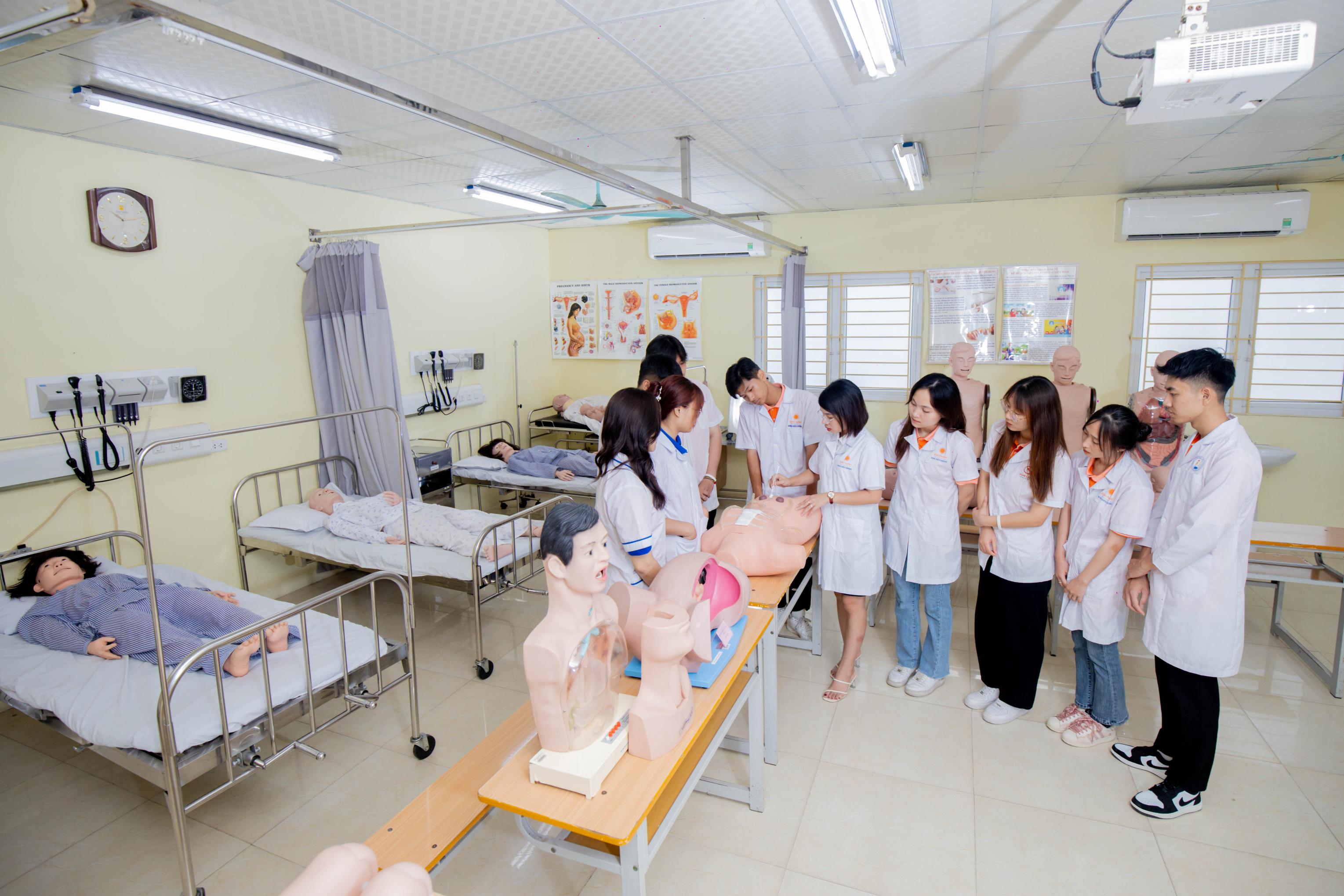
Nursing students of Dai Nam University practice on a model at school.
Nurses are people who, together with doctors, diagnose, treat, and care for the physical and mental health of patients. A professional nurse not only needs to have solid expertise but also requires good qualities. If you have a dream of wearing a white coat and carrying out the mission of caring for and protecting people's health, then Nursing is a profession for you.
What do Nursing students learn at Dai Nam University?
The Nursing Department of Dai Nam University is developing towards gradually meeting ASEAN standards and approaching international standards by 2025. Graduates are guaranteed to achieve output standards in knowledge, skills, autonomy and responsibility as prescribed by the Ministry of Education and Training. Students are "hand-held and guided" to learn from simple to complex, and are able to perform 55 basic clinical nursing skills proficiently.

Nursing students of Dai Nam University are integrated into an international environment.
The subjects that students are equipped with are knowledge of basic nursing, health - health promotion environment, nursing pharmacology, nursing management, health management organization, immunopathophysiology, medical ethics psychology, infection control, rehabilitation, traditional medicine, internal medicine nursing, surgery, psychiatric nursing, emergency resuscitation...
The competencies students receive after each specific year of study are as follows:
First year: Focus on studying basic science subjects mixed with basic medical subjects such as biology, anatomy... and the foundation subject of nursing science is Basic Nursing.
Second year: Students further develop their knowledge and skills in basic medical sciences such as microbiology, histology, physiology, biochemistry, etc. to form a basis for studying nursing majors. At the same time, students learn basic nursing skills in the Skillslab in small groups and on models. Students learn English to achieve the TOEIC output standard of 400 points.
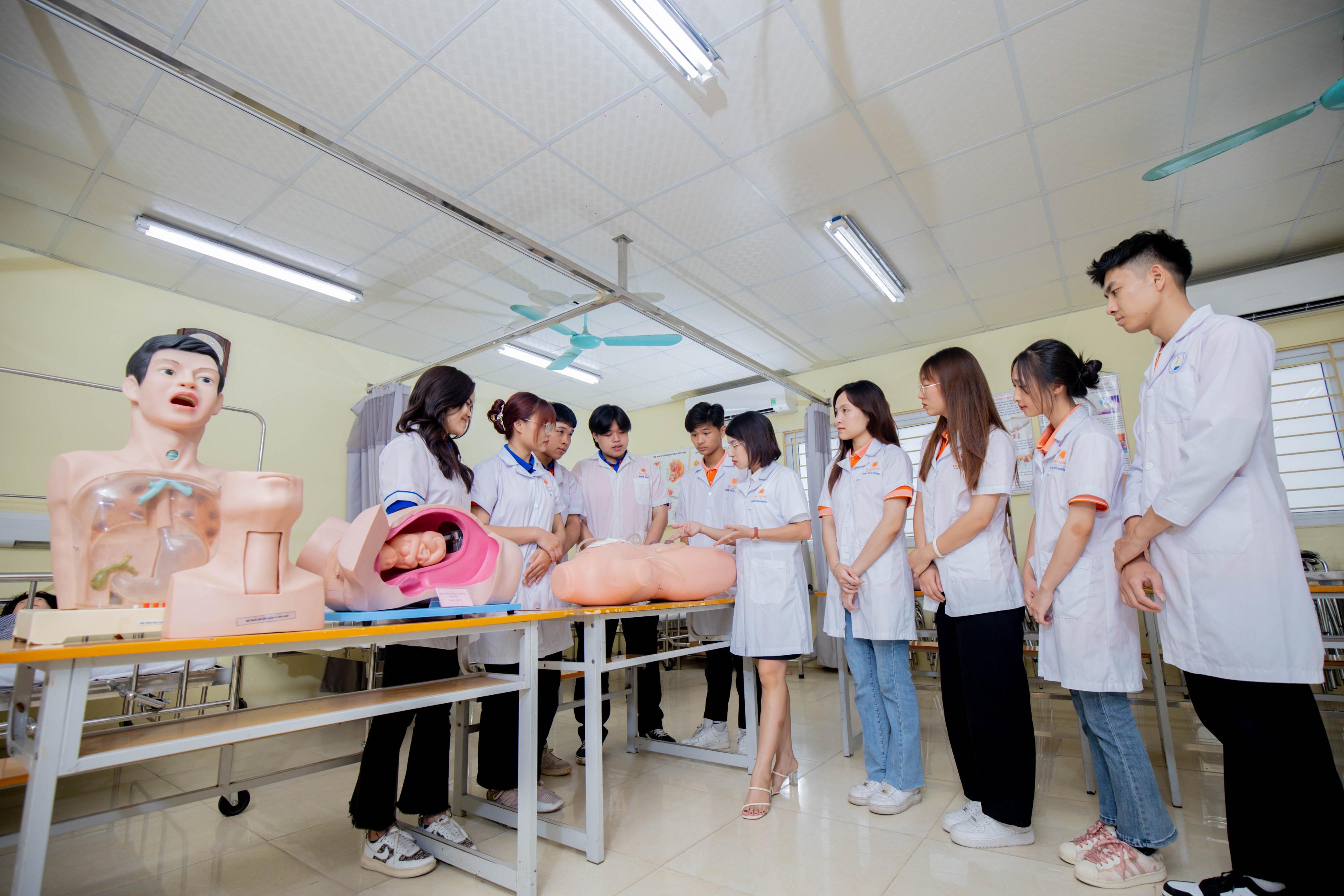
A small corner in the practice hospital of the Nursing Department of Dai Nam University.
Third year: Students practice at hospitals in Hanoi in the skills of Internal Medicine Nursing, Surgical Nursing, Pediatric Nursing, Obstetrics and Gynecology Nursing, Emergency Resuscitation, and Infection Control.
Fourth year: Continue to study and practice at the hospital the skills of Psychiatric Nursing, Rehabilitation Nursing, Infectious Disease Nursing, Community Nursing, Geriatric Nursing, Traditional Medicine Nursing, Nursing Management and Graduation Internship.
What do nursing graduates do?
Currently, Vietnam has more than 140,000 nurses/midwives, reaching a ratio of 11.4 nurses/10,000 people, much lower than the world average. To reach the target of 25 nurses/10,000 people by 2025, ensuring better response to people's healthcare needs, Vietnam needs more than 320,000 nurses/midwives.
In recent years, along with the aging population, the need for daily health care for the elderly has increased rapidly in many countries around the world. The shortage of nurses has led to overload in medical facilities, unable to meet the care needs of patients, so the need for nursing recruitment in Vietnam and around the world is extremely large.
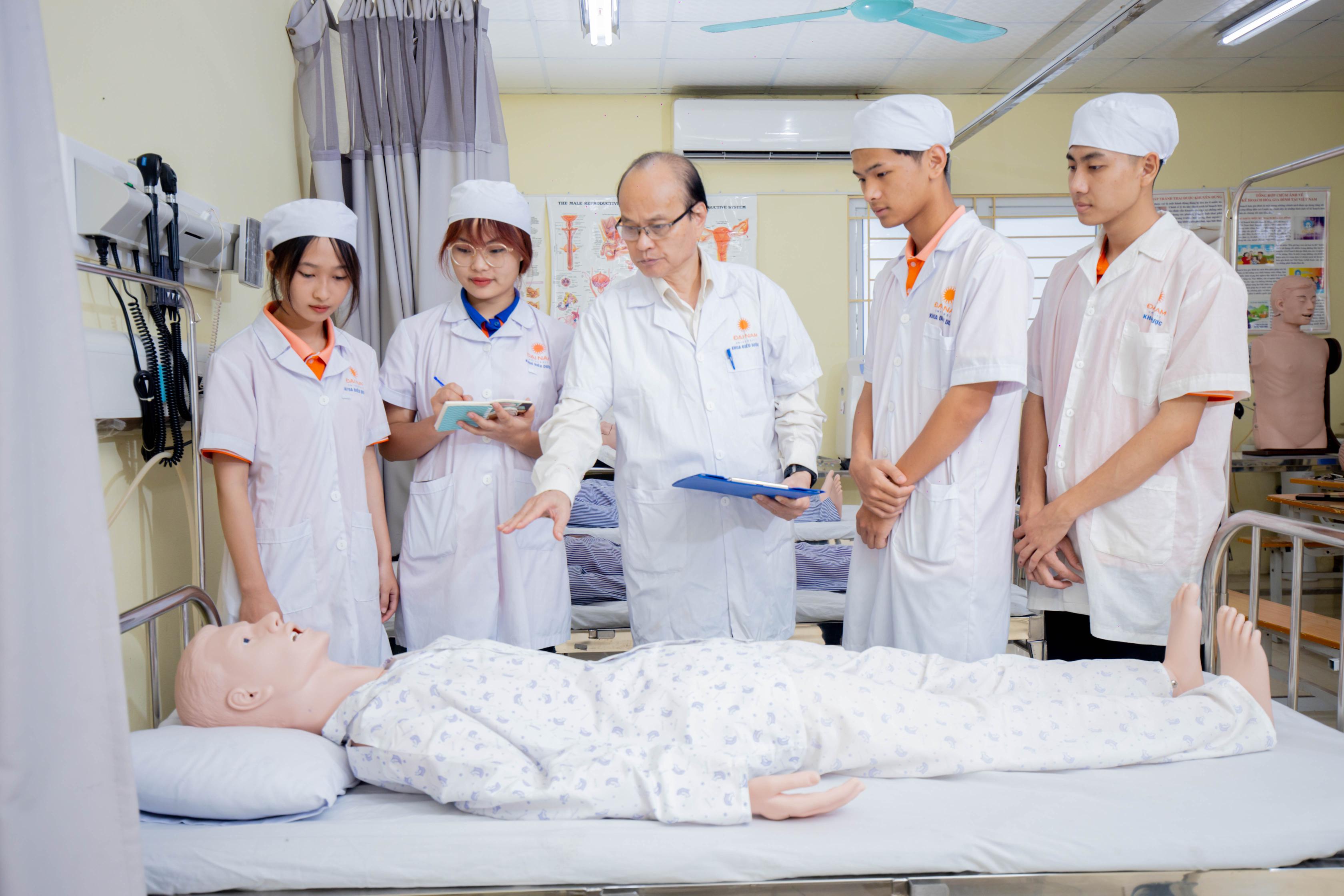
Nursing graduates work in departments in the system of 13,547 medical facilities including: large and small hospitals, provincial/district general hospitals, large and small clinics, research institutes, nursing schools, nursing centers, health stations, medical departments in schools and businesses and private medical facilities with legal status; Head Nurses of Departments, Rooms and Hospitals; Lecturers at Nursing training facilities; Masters and Doctorate in Nursing to teach and research. In particular, after graduation, students have the opportunity to work long-term in Japan with permanent visas at Japanese nursing hospital systems - the school's international partner.
Degree value of Nursing at Dai Nam University
Students after graduating from Dai Nam University will be awarded a Bachelor of Nursing degree by the Ministry of Education and Training and recognized nationwide.
04 ways to become a Nursing student at Dai Nam University
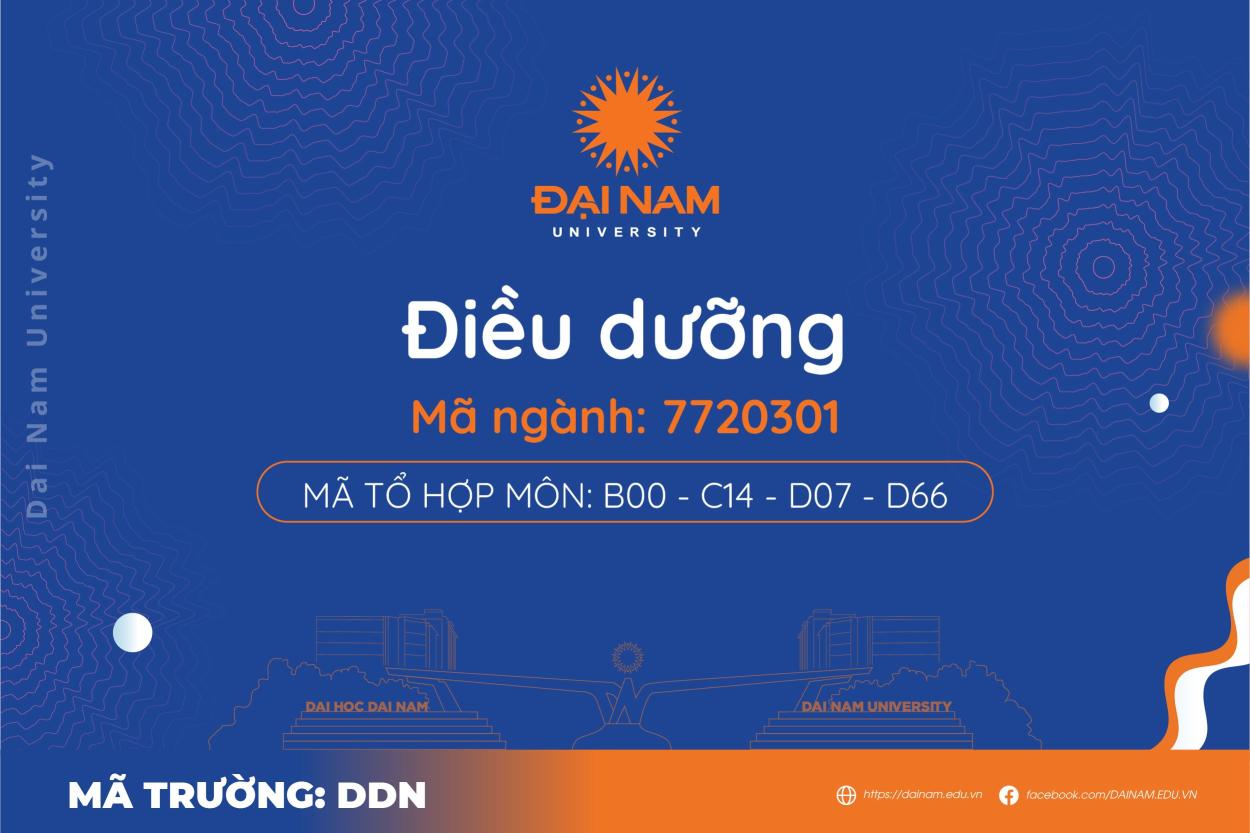
In the 2024-2025 school year, Dai Nam University will enroll 250 students in the regular university program of Nursing (major code: 7720301) according to 4 admission methods. Specifically:
Method 1: Consider the results of the 2024 high school graduation exam.
Method 2: Consider high school academic results (Consider academic records). Total score of 3 subjects according to the admission combination ≥ 19.5 points, 12th grade academic performance is Good or higher.
Method 3: Direct admission according to regulations of the Ministry of Education and Training and the School.
>>> REGISTER FOR ADMISSION: HERE
Communications Department

